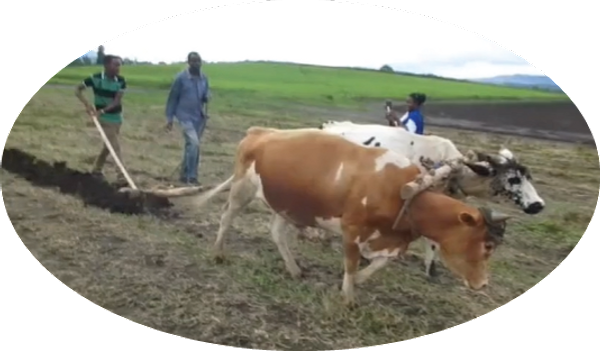A new perspective on an old plow
ตีพิมพ์แล้ว
2022-11-22
There is an ancient plow that originated thousands of years ago in the country of Ethiopia called the Maresha plow. It is not a plow like we are used to seeing and using. It is very simple, more accurately called an ard. It has a hardened steel point mounted on the end of a small sapling that extends from the earth up through a larger sapling that we would call the tongue. The small sapling then acts as a lever that an operator can use to balance the point as it is pulled through the earth by a team of oxen or donkeys managed by a separate teamster. ECHO East Africa staff looked at the Maresha plow and determined that they might be able to modify it to do two things at once as it was pulled through the earth; plow and plant. They discovered a seed dispensing mechanism that was plateless and could successfully handle a wide variety of seed sizes. The motivation for their efforts was to provide famers in Tanzania and elsewhere with a piece of equipment that would greatly improve planting efficiencies. This they accomplished very successfully and the first planters were introduced commercially to Tanzanian farmers for the 2022 growing season. The responses of farmers who used the plow/planter were very good, with one reporting that he had planted an acre of corn in four hours with two operators compared to what would have taken 15 people two days to do manually. When asked if there were any notable improvements that could be made on the piece, the response was that more precise seed placement, with the ability to plant deeper in dry conditions and more shallowly in wet would be good. And to be able to disturb the earth a bit below where the seed would be dropped and then push some loose dirt back into the opening before dropping the seed so that roots could more easily push down rather than sideways, was mentioned and a way to cut through dried up plant residue from previous crops so that they would not hang up on the point of the plow was the third challenge to consider.
written by Dale K Stoltzfus